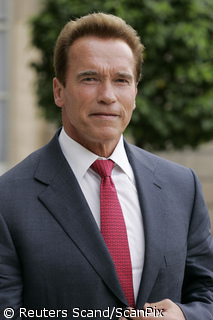The central bank governor is warning that the euro is not the cure for all Poland's ills
Published:
19 January 2005 y., Wednesday
The central bank governor Leszek Balcerowicz is warning that the euro is not the cure for all Poland's ills.
Leszek Balcerowicz believes the government should focus on reforms to yield long-term economic growth, rather than rushing to join the single currency.
"I never said that Poland should enter [the eurozone] at any cost. I said the best strategy is to fulfill conditions for euro entry in a rapid and sustained way," said Balcerowicz, while attending a meeting of central bank governors last week. "The process of EU enlargement was conducive to reforms. The idea of euro entry should be a similar incentive."
Balcerowicz has frequently said that eurozone entry is a political, rather than an economic issue, and that taxes and spending are currently too high for single-currency membership. He also said that tougher reforms were necessary to free Poland from the shackles of long-term high unemployment. In the 1990s, his economic treatments helped Poland recover from the collapse of communism.
"It will pay for Poland to undergo fiscal consolidation," he said. "Unemployment in Poland is not due to over-excessive market-oriented reforms. All of the reasons are structural. There has been some labor market liberalization but I think we need much more decisive action."
Despite his comments, the Civic Platform (PO) party, which is expected to win the next general election, says eurozone entry by 2009 will be a key objective for the party. "Our government will have the strategic goal of adopting the euro by 2008 or 2009. We will do everything to make sure it happens," said Zbigniew Chlebowski, deputy head of the Platform's parliamentary group.
Chlebowski also hinted at the future government's economic policy plans, saying major reform initiatives-such as its flat-tax proposals-would be launched at the start of 2007, not in 2006 as earlier signaled. He also said that limiting the budget deficit in 2006 would be difficult because of the outgoing government's spending promises but that fiscal policy would tighten from 2007.
Šaltinis:
wbj.pl
Copying, publishing, announcing any information from the News.lt portal without written permission of News.lt editorial office is prohibited.
The most popular articles
 HP (NYSE:HPQ) today announced financial results for its first fiscal quarter ended Jan. 31, 2009, with net revenue of $28.8 billion, up 1% from a year earlier and up 4% when adjusted for the effects of currency.
more »
HP (NYSE:HPQ) today announced financial results for its first fiscal quarter ended Jan. 31, 2009, with net revenue of $28.8 billion, up 1% from a year earlier and up 4% when adjusted for the effects of currency.
more »
 Saddled with an ongoing housing crisis, rising unemployment and an arguably flawed system of balancing the budget, California's "Golden dream" has turned a dismal shade of gray.
more »
Saddled with an ongoing housing crisis, rising unemployment and an arguably flawed system of balancing the budget, California's "Golden dream" has turned a dismal shade of gray.
more »
 ATM software provider Level Four Americas LLC found in a recent survey that 67 percent of U.S. adults who use financial institution with ATMs would be likely to switch FIs after an instance of ATM fraud or a data breach.
more »
ATM software provider Level Four Americas LLC found in a recent survey that 67 percent of U.S. adults who use financial institution with ATMs would be likely to switch FIs after an instance of ATM fraud or a data breach.
more »
 As designers put the finishing touches to their collections ahead of this year New York fashion week, the recession is on everyone's minds.
more »
As designers put the finishing touches to their collections ahead of this year New York fashion week, the recession is on everyone's minds.
more »
 On February 17 - March 13 this year, AB Bank SNORAS distributes one-year bonds with the fixed 11 per cent annual return, which can be regained after keeping the bonds for at least 28 days.
more »
On February 17 - March 13 this year, AB Bank SNORAS distributes one-year bonds with the fixed 11 per cent annual return, which can be regained after keeping the bonds for at least 28 days.
more »
 Europe's controversial fishing policy was under scrutiny Tuesday at a public hearing in Parliament about its future shape.
more »
Europe's controversial fishing policy was under scrutiny Tuesday at a public hearing in Parliament about its future shape.
more »
 The European Commission has approved, under EC Treaty state aid rules, a Swedish aid scheme intended to bolster the financing of the real economy by providing capital to banks.
more »
The European Commission has approved, under EC Treaty state aid rules, a Swedish aid scheme intended to bolster the financing of the real economy by providing capital to banks.
more »
 During the draw another five winners of the Danske Bankas monthly Scholarship award were announced.
more »
During the draw another five winners of the Danske Bankas monthly Scholarship award were announced.
more »
 In the special action of Bank SNORAS the participating depositors were presented 12 monetary prizes whose value reaches from 1 up to 50 thousand Litas.
more »
In the special action of Bank SNORAS the participating depositors were presented 12 monetary prizes whose value reaches from 1 up to 50 thousand Litas.
more »
 Solid performance despite rapid economic slowdown.
more »
Solid performance despite rapid economic slowdown.
more »